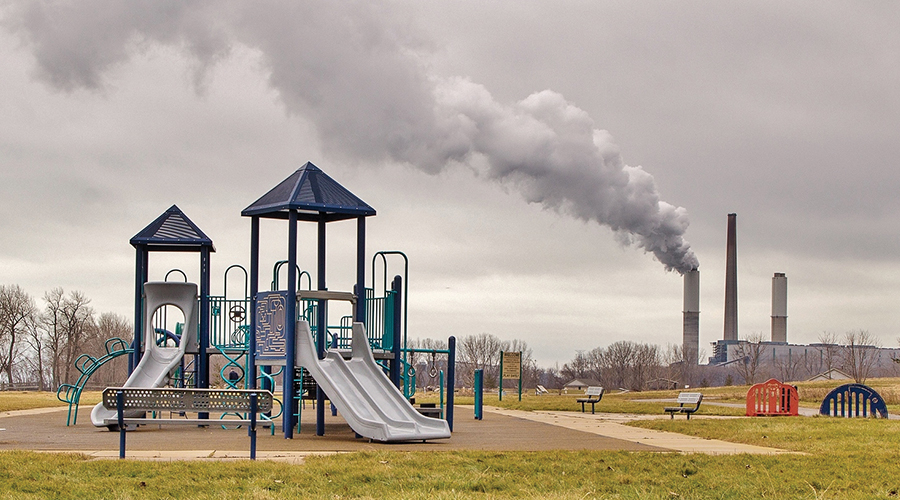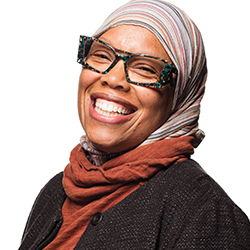
“Environmental justice is everything,” says Dr. Katera Moore (Master of Environmental Studies ’06), Assistant Professor of Environmental Studies at Unity College and lecturer in the Master of Environmental Studies (MES) Program. “It’s not abstract. It’s a place-based issue with a tangible impact on everyday lives.” Formerly the Director of the Agatston Urban Nutrition Initiative (AUNI), a division of the Netter Center, and a recent contributor to environmental justice policy at the national level, Moore can testify to that impact on a local, national, and global scale. Wherever you look in the world, she says, whether you look at water insecurity, climate disasters, or conflicts over resources, “environmental injustice ends up being a symptom of a broader structural injustice.”

That is one of the lessons of Meaningful Participation: Race, Place, and Environmental Justice, a spring 2021 course she developed in response to strong student interest in the subject. “Given everything that has happened this year, the time is now,” reflects Moore. An alumna of the MES program herself and a former National Science Foundation Graduate Research Fellow, Moore is ideally positioned to offer the combined academic expertise and practical experience that characterize the MES approach.
The course opens with an introduction to environmental justice, including contemporary issues and methods such as participatory action research, and culminates with an examination of larger structural issues such as food systems, health disparities, and residential segregation. In addition to her own experiences partnering with Philadelphia schools for nutrition education, Moore brings in guest speakers with experience effectively collaborating with their communities to promote health initiatives, community advocacy, community development, and youth engagement. “You have to engage with the community, find out what skills and resources they have to offer, and help them build the capacity to make meaningful change,” explains Moore. “That's really what the class is about: respectfully engaging with the community so that you can foster meaningful participation. There is no sustainability if we have a citizenry that cannot fully access civic participation.”
In a course focused on place-based environmental justice, her students spend time navigating and observing a local neighborhood in person to develop a better understanding of that community’s resources and needs. Imagine teaching nutritional guidelines like “make your plate half fruits and vegetables” to a school in a food desert, she says: “You have to really know what’s happening on the ground when you try to build relationships between organizations.” In another year, observation assignments might have entailed walking around a local neighborhood together as a class. In spring 2021, MES courses are held online for student safety, and Moore encouraged students to observe communities wherever they were located or where they were planning to conduct further research. “I actually think it’s been more meaningful for students to pick their location,” she adds.
In addition to the observation assignments, the environmental justice students create a mock grant proposal modeled after the Environmental Protection Agency Environmental Justice Small Grants Program. “If you're going to be doing nonprofit work, you're going to have to be able to write a grant. You have to dance for your supper,” says Moore. But even if you aren’t preparing for a nonprofit career, she adds, the skills are transferable. “The skill set is how to do community work and then how to report on this work,” she says. “How am I going to engage? How am I going to track my progress? Things that you would need to do in any job: tell the story of what you wanted to do and why it was successful.”
“Climate change is a big issue,” concludes Moore. “But you can do some small things at the property level, at a community level, and the individual level that can really change the game.”





